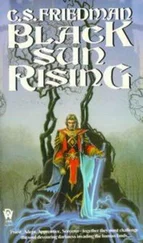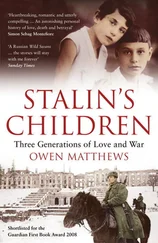It had been Major Efremov who had conducted most of the interviews with Petrov’s colleagues in the days after his death. The language of the transcripts was a familiar high officialese, for the most part a dense wad of meaninglessness. But one witness stood out: Dr. Vladimir Axelrod, Petrov’s laboratory colleague and, by his own admission, personal friend.
EFREMOV O. P. (MAJOR, GUGB/AZ16): Comrade Doctor Axelrod, kindly present your estimation of the deceased’s mental state in his final days.
AXELROD V. M.: My observation was that Dr. PETROV exhibited no behavior that could be described as out of the ordinary.
Q: How frequently did circumstances afford you the opportunity to assess the mood and behavior of the deceased?
AXELROD V. M.: We saw each other on a daily basis when we were working on the same project. In the final days of his life this was the case. We also had frequent social intercourse with other comrades from the Institute.
Vasin rubbed his eyes and swore quietly. The formality of such records had always infuriated him, squeezing out the words’ life and casting every subject into a predetermined role, the contrite criminal, the helpful citizen.
Q: Are you aware of any circumstances, professional or personal, that may have caused Comrade PETROV’S mind to be unusually stressed or disturbed?
AXELROD V. M.: We are all in a state of professional stress due to the urgency and importance of Project RDS-220.
On the page, fiercely typed out in triplicate, the investigator and his subject spoke like amateur actors declaiming lines from some archaic play. And yet, of all Petrov’s colleagues, only Axelrod had been summoned for a second interrogation, this time with General Zaitsev personally. The tone of the next interview was more brutal. Zaitsev knew precisely what he needed from his subject.
ZAITSEV O. V. (M-G GUGB/AZ16): Are you aware of any persons who may have introduced subversive influences into Dr. PETROV’S life?
AXELROD V. M.: I know of no such subversive influences.
Q: He was known to read foreign literature of a nihilistic nature. Who pressed such psychologically unhealthy material on to PETROV?
AXELROD V. M.: I know nothing of Dr. PETROV’S literary influences. But he received his books in the same way as all of us. By special post from the Library of the Academy of Sciences, or from our institutes, or from our families. Most likely, PETROV’S father sent it to him. I suggest you ask the Comrade Academician. I understand that he is a man of wide interests.
A mistake on Axelrod’s part, Vasin saw immediately, to try to crack a joke with a man like Zaitsev. He could imagine the General’s meaty face flushing at the young man’s insolence.
Q: Answer the question. Did you supply him with any subversive or foreign literature?
AXELROD V. M.: In July of this year I lent the deceased a copy of BEING AND NOTHINGNESS by JON POL SARTR (SP??), a French progressive.
Q: And what is the nature of this book?
AXELROD V. M.: It is a philosophical work of the existentialist school. The author asserts that an individual’s existence is prior to his essence. He is concerned with proving that free will exists.
Q: Has this book been approved by competent authorities for the Soviet reader?
AXELROD V. M.: It is not a banned book, as far as I know.
Q: Answer the question. Has it been approved for general reading?
AXELROD V. M.: No.
Q: Because its content is subversive or anti-Soviet?
AXELROD V. M.: I cannot comment on what is and is not approved for the general reader or why. We are privileged here at Arzamas to have unrestricted access to foreign periodicals and literature because we need this material for our scientific work.
A spirited riposte. But between the lines Vasin’s interrogator’s eye could read, long before Axelrod saw it, the goal toward which Zaitsev’s questioning was leading, steady as a tractor plowing a furrow.
Q: Did PETROV read much restricted foreign literature?
AXELROD V. M.: None of us have much time to read for leisure.
Q: Nonetheless, you would confirm that he was interested in such foreign philosophies? When he could, he read them?
AXELROD V. M.: He was interested.
Q: Therefore he was under the influence of the Frenchman SARTR (SP?)?
AXELROD V. M.: In a sense, yes.
Q: And you would confirm that in the weeks before his death PETROV’S social activities had reduced significantly?
AXELROD V. M.: All our activities have been significantly reduced by the RDS-220 program.
Q: But you confirm this to be PETROV’S case?
AXELROD V. M.: Yes.
Q: You can also confirm that he was showing signs of stress? Sleeping irregularly?
AXELROD V. M.: You could say the same for all of us at this time.
Vasin turned the page. Zaitsev had set up every part of his theory as carefully as a billiard trickster positioning his balls. Now he sank them, one by one.
Q: Comrade Doctor. You clearly failed to spot the signs of mental disintegration in your comrade in the days and weeks before his death. Do you feel remorse?
AXELROD V. M.: Naturally we all felt shock and remorse at Dr. PETROV’S death.
Q: You personally felt remorse?
AXELROD V. M.: I felt remorse.
Q: You have confirmed that the deceased was under considerably increased work pressure. You have also said that his sleeping became erratic, his social life dwindled. Do you wish to deny or confirm these statements?
AXELROD V. M.: I confirm.
Q: Furthermore, you have said that PETROV was in the habit of studying foreign philosophical literature of a nihilistic nature that is not considered suitable reading for the general Soviet public. You have said that at least some of this material he received from you. You deny or confirm this?
AXELROD V. M.: I confirm.
Q: Would you accept the formulation that in your Communist enthusiasm for your vitally important work for the Motherland you may have overlooked difficulties your Comrade PETROV was experiencing in his personal or interior life?
AXELROD V. M.: I accept it.
(Signed) AXELROD V. M. (Signed/Interrogation conducted by) Major General ZAITSEV O. V. (Signed/Interrogation witnessed by) Major EFREMOV O. P.
Vasin knew he wouldn’t have to read Zaitsev’s final report. The General’s theory had been neatly laid out in the Axelrod interrogation. Petrov, in the official opinion of the KGB, had been driven to take eight thousand times the lethal dose of thallium by a deadly combination of overwork and French existentialism.
V
Vasin stretched wearily at his desk in the kontora’ s registry. Outside the windows the light was draining from the gray sky. He closed the files and tapped his notes into a neat stack. He was hungry. But when he caught sight of Efremov bustling through the double doors with thunder in his face, he knew that the cafeteria would have to wait.
“Vasin?”
“That’s me.”
“Listen, I don’t know what you think you’re playing at, or who it was that your people called, but…”
“The Professor is ready for me? That’s what you came to say? You’re kind.”
Vasin stood briskly, folded his papers into his tunic pocket, and smiled at Efremov’s obvious discomfiture. A familiar enough scene: the local officer on the case realizing with ill grace that he’s not master in his own house. He hadn’t been expecting flowers. “Never hurts to give the little jerks a little jerk,” Orlov had advised Vasin. “They need to know who’s in charge.” Orlov had himself in mind.
A kontora Volga sedan awaited them. The driver pulled a blithe U-turn across the central reservation and raced the car across the darkening town toward the Professor’s home.
VI
The Adamovs lived in a handsome pre-Revolutionary building that overlooked the monastery on the far side of the Savva River. The facade was decorated with plaster caryatids and nymphs, their ancien régime voluptuousness rendered saggy by thick coats of Soviet paint. A single angry eye peeked from the concierge’s booth in the hall, but was evidently satisfied by Vasin’s and Efremov’s uniforms. As they ascended the stone stairs, Vasin noticed that this place had none of an apartment building’s usual cacophony: no noisy radios or raised voices, children’s shrieks or slamming doors.
Читать дальше












